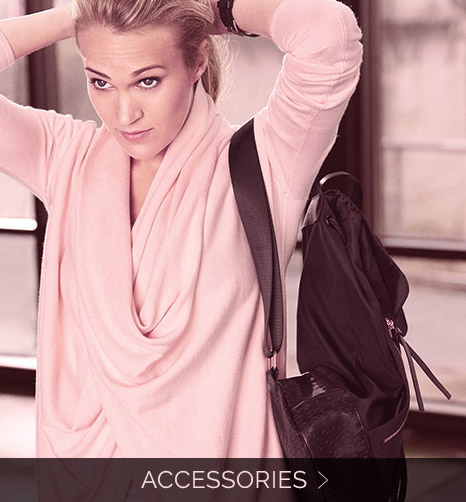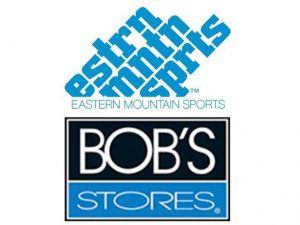 The shuttering of sporting goods stores, and the high profile bankruptcy proceedings of Sports Authority, Eastern Mountain Sports, Bob’s Stores and Sport Chalet, are a sign of the times. Differentiate your brick-and-mortar operation or die. As sporting goods retailers reassess their position in the value chain, they have looked to sporting goods private labels as a lifeline.
The shuttering of sporting goods stores, and the high profile bankruptcy proceedings of Sports Authority, Eastern Mountain Sports, Bob’s Stores and Sport Chalet, are a sign of the times. Differentiate your brick-and-mortar operation or die. As sporting goods retailers reassess their position in the value chain, they have looked to sporting goods private labels as a lifeline.
Differentiate or Die
There is no question that the demise of Sports Authority was intricately tied to its difficulty in differentiating its brand. With competition from omnichannel merchants and even the sporting goods brands themselves, it became increasingly difficult for Sports Authority to stand apart. This lack of differentiation is what allowed big-box stores like Walmart and Target, on-line giants like Amazon, as well as the brands themselves (like NIKE or Under Armour) to push Sports Authority to the sidelines.
America is already over-stored, and you see more wholesale brands going direct-to-consumer e-commerce. An Economist study found that the percentage of manufacturers selling directly to consumers is expected to grow 71% over the next year to more than 40% of all manufacturers. Brands like NIKE, Adidas and Under Armour are already offering their products to customers directly through both retail outlets as well as on-line sales. They continue to grow at rapid rates of over 25%.
Previously, stores like Sports Authority, Sport Chalet, Dick’s, Cabelas – they were seen as the gateway to the most popular brands in sporting goods. But with increasing direct-to-consumer sales and a savvier customer, people understand that they have other means to get the brands that they want. This poses huge challenges for sporting goods retailers.
Sporting Goods Private Labels – Celebrity Branding
No longer the gatekeeper, sporting goods stores have had to find their relevance by offing unique selections to consumers. Many are doing this by building out successful sporting goods private labels that are beyond value alternatives. In fact, the successful sporting goods private labels are building meaningful brand alternatives in creative ways, many by joining forces with celebrities.

Dick’s, the country’s largest sporting goods retailer, teamed up with singer Carrie Underwood to create Calia, an exclusive fitness collection that was rolled out in its stores last year. By bringing together what Dick’s knows about its customers with the brand power of Carrie Underwood, they hope to provide a unique and relevant offering to the consumer. It’s a game that even the largest sporting goods brands understand. By pairing top sporting goods brands with celebrities and designers – like Adidas with Kanye West, Stella McCartney, and Pharrell Williams – brands hope to expand their reach by appealing to a broader customer base with relevant retail product.
Building brand equity is the name of the game and both retailers and brands are scrambling to do whatever they can to create a broader and more loyal clientele.
While this is important for the brands, it’s even more important for the brick-and-mortar retailers that are stuck in a difficult middle – between the on-line retail giants like Amazon (that can carry a much more extensive line of products than can be carried in stores) and the direct-to-consumer brands (that offer very specific product for their specific customer base at competitive price points).
Brand Equity and Profitability
One thing that has kept some brick and mortar stores relevant has been the investments they have made in their sporting goods private label brands. There are all sorts of reasons why, not least of which is that private labels are more profitable. But they also engender customer loyalty, which is of paramount importance in the sporting goods business.
Brands must be focused on developing a loyal clientele and to do that they need to understand their customer. Enter content marketing. A brand’s ability to effectively tell stories creates a stronger bond with consumers, both pre- and post-sale. It is through this bond that a brand comes to better understand its customers and by focusing on consumer needs and its product, brands can grow to become hugely profitable.
The value, therefore, for both retail and wholesale is in building a brand and to effectively do so, each must understand its consumer better or risk losing him/her to the competition. Years ago, sporting goods retailers were very much focused on their customer. But competitive pressures for top line growth that was often pursued via acquisitions created a growing divide between the stores and their customers. Retailers became increasingly disconnected with the consumer while the brands built loyalty and began amassing reams of data on consumer preferences to be able to better serve its customers.
The reality, though, is that the retailers are closer to the customer than national brands. While more and more traffic is moving from brick-and-mortar to internet, there are still huge advantages that face-to-face interaction can yield for savvy retailers.
Initially, sporting goods private labels were “followers” – offering value propositions by mimicking national brands at lower price points. But the most successful sporting goods retailers have begun to move away from a value alternative solution to high quality and innovative products that offer meaningful brand propositions.

Successful portfolio optimization has been present across grocery, pharmacy and convenience channels. However, sporting goods retailers are only beginning to understand the value that well positioned sporting goods private labels can bring and it may be too late. The survivors will be those that can differentiate and optimize and the rest will go the way of Sports Authority, Bobs and EMS. RIP.
